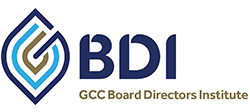 BDI member Walid Shukri serves as a board member at a wide range of regional and global companies. The firms are at various stages of maturity, ranging from family businesses to being listed on the stock exchange. Walid’s extensive boardroom experience spans various industries, such as construction and engineering, hospitality, manufacturing, consumer electronics, recycling and real estate.
BDI member Walid Shukri serves as a board member at a wide range of regional and global companies. The firms are at various stages of maturity, ranging from family businesses to being listed on the stock exchange. Walid’s extensive boardroom experience spans various industries, such as construction and engineering, hospitality, manufacturing, consumer electronics, recycling and real estate.
Walid, what are the main attributes of an effective board director?
Board members today need to realise their basic role within the management hierarchy in an organisation: the board monitors management. They have a fundamental fiduciary duty to represent and protect the interest of shareholders.
Furthermore, in today’s challenging economic environment, companies and board members will need to take more time to understand the issues that are facing organisations.
An effective board member needs to have an extensive understanding of the company, strategy, and operating issues. Directors add value when they listen and learn and understand what other directors have on their minds and respect other views.
Directors should downplay self-interest to promote oneself or idea and contributions should be constructive and guided.
It’s also important maintain a minimum of two independent board members who usually provide more candid and neutral opinions.
Finally, it is very important for board members to have a minimum level of financial knowledge that enables them to ask the right and, when needed, difficult questions.
How can ethnic and gender diversity enhance board dynamics?
Businesses are facing digital disruption, complex transactions and globalisation. The overall pace of change in business has increased significantly. Cumulative experiences and research have shown that “diversity is the womb of innovation”. Successful boards will need to embrace the ideas of a cross culture, cross gender, and cross disciplines to thrive and face emerging operational and economic challenges of the coming years.
In an ever-changing GCC business environment, what are the top three methods to sustain sound corporate governance?
In order to promote sustainable corporate governance, the practice needs to be part of the fabric of the organisation. The organisation needs to have continuous regulatory engagement.
A sustainable corporate governance system needs to be a dynamic process with companies always striving to learn and improve. What’s more, a sound corporate governance environment always starts with the presence of complete and relevant policies and procedures.
Such policies then need the board to set the right tone at the top about compliance and risk appetite. Finally, the third and normally most important part is having an effective internal audit function and a board audit and risk committee that enables the board members to understand financial, risk and compliance challenges.
Why doesn’t a ‘box ticking’ approach work when implementing corporate governance?
To implement proper corporate governance in any organisation is a significant and complex undertaking. It requires the entire organisation to understand and be aware of the different requirements of corporate governance.
Corporate governance requirements need to be entrenched within the organisation to be effective. Having a few individuals sitting in an office ticking a checklist does not work and indicates the lack of maturity of the organisation and understanding of corporate governance.
Can you tell us about the top insights you have gained in your extensive career as a board director?
I have served in organisations that have differing legal set ups, sizes and jurisdictions. The cross-border, cross-cultural and gender diversity experiences have broadened my horizons. I believe it’s very important to want to learn and to have an open mind. It’s essential to be curious about everything and you also need to ask the “why”. If you are able to have very strong mentors that are willing to invest the time in you then that can also help tremendously.
More about Walid Shukri:
Walid was born in Saudi Arabia and went to King Fahd University of Petroleum & Minerals, Saudi Arabia, graduating in 1989 with a Bachelor’s Degree from the School of Industrial Management.
He has since held senior partnership roles at Deloitte and PwC in both the US and Saudi Arabia. He has served on various accounting and audit setting committees at the Institute of Internal Auditors, Institute of Management Accountants and regularly speaks at corporate governance forums.
In 2012, Walid developed and currently owns a hotel in Madinah, “Dar Al Shuker”. In addition, in 2016 he established the Afaq Cold Storage company in Jeddah.



COMMENTS ARE OFF THIS POST